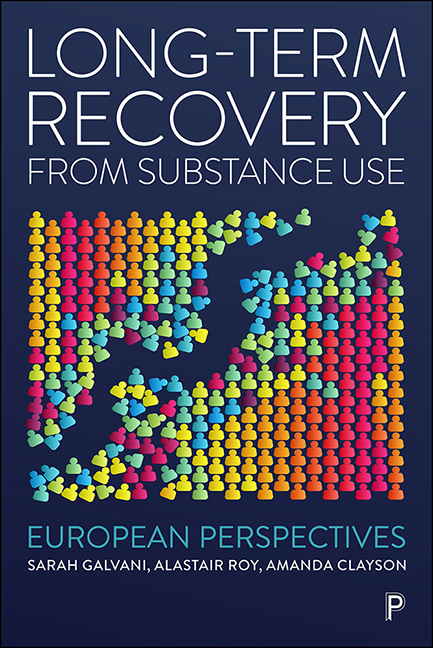10 - Social and structural issues in recovery among migrants and ethnic minorities: an exploration of cultural competence and individual recovery perspectives
Published online by Cambridge University Press: 15 September 2022
Summary
Introduction
European population-based studies on substance use prevalence among migrants and ethnic minorities (MEM) are scarce (De Kock, 2020b). The studies (for example Salama et al, 2018; Harris et al, 2019) suggest that substance use prevalence rates among first-generation MEM (people who have migrated themselves) are lower compared to European host populations and that this may reflect substance use behaviours in countries of origin (Lemmens et al, 2017; De Kock, 2020b). Nevertheless, prevalence in this group is expected to become similar to that in the general population over time (Priebe et al, 2016).
Less is known concerning the mechanisms that underlie substance use among MEM in Europe. MEM are often more exposed to known risk factors (for instance depressive symptoms, societal exclusion, pre- and post-migration circumstances) for substance use compared to non-MEM counterparts (Missinne and Bracke, 2012; Giacco et al, 2018). Moreover, they often have less access to treatment, both because of issues with healthcare entitlement (especially undocumented migrants) and due to limited health-system responsiveness and access barriers (WHO, 2010; IOM, 2016). These risk factors can influence the initiation of substance use, as well as hinder the achieving of stable recovery (Matsuzaka and Knapp, 2019). Stable recovery is understood here as ‘a dynamic process characterized by increasingly stable remission resulting in and supported by increased recovery capital and enhanced quality of life’ (Kelly and Hoeppner, 2015).
Although more population-based prevalence research among European MEM is needed (De Kock, 2019), knowledge about population prevalence alone is insufficient to meet MEM needs in treatment. As stated by Ritterand colleagues (2019, p 22) the study of prevalence ‘is limited in its usefulness unless it is matched with consideration of different treatment types and their relative intensity, and/or explored as a function of geography and subpopulation’. Currently, little is known about stable recovery of MEM and the way treatment services, as well as policy guidelines, can better respond to their diverse needs.
Although varying influences may affect individuals with similar ethnic and migration backgrounds differently, societal responses to ethnic diversity are often predominantly centred around culture-based adaptations, such as trying to understand generic ‘Muslim values’ (Rondelez et al, 2018).
- Type
- Chapter
- Information
- Long-Term Recovery from Substance UseEuropean Perspectives, pp. 127 - 142Publisher: Bristol University PressPrint publication year: 2022



